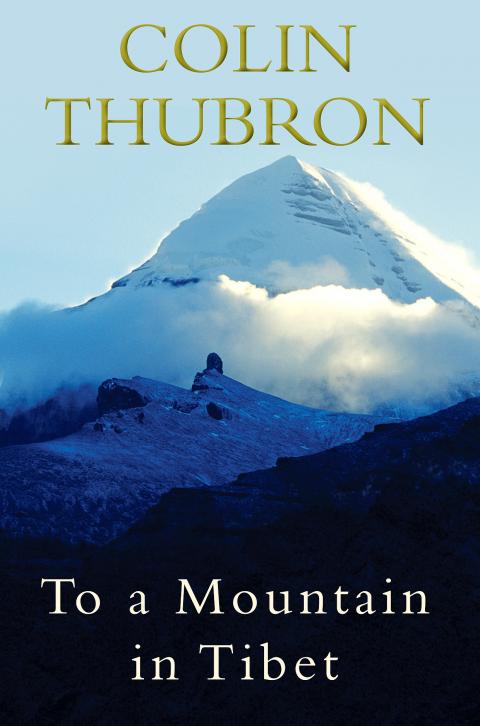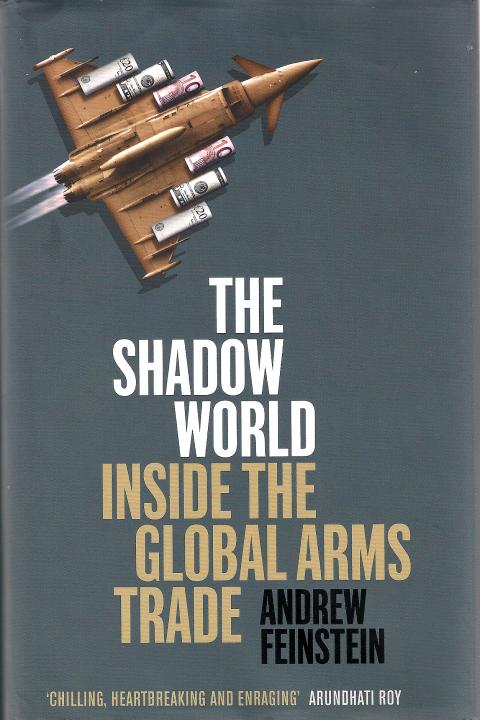Of the books I’ve reviewed this year, the most somber, terrifying and menacing was The Shadow World: Inside the Global Arms Trade by Andrew Feinstein (Hamish Hamilton; reviewed in the Taipei Times Jan. 31). Not only does it give extensive information about private arms dealers — it also considers government involvement. It was reminiscent of the film The Lord of War, at the end of which the credits state that the planet’s biggest exporters of arms are the US, Russia, the UK, France and China — in other words, the five permanent members of the UN Security Council. It makes you think again about the kind of world we’re really living in.
Not necessarily an answer to the horror of the international arms trade, but nonetheless enormously fascinating as history, was the re-issue, finally in its complete form, of Victor Serge’s 1951 classic Memoirs of a Revolutionary (New York Review of Books; reviewed June 5). Serge joined the Bolsheviks for a time while remaining resolutely opposed to all terror tactics, not to mention being a life-long opponent of the death penalty. Later he was sentenced to internal exile, and was lucky to be released after protests from writers in the West, ending his life in Mexico. His wonderful autobiography makes for a substantial and very invigorating read.
Back in the modern world, but a long way from most people’s experience of it, was Colin Thubron’s To a Mountain in Tibet (Vintage; reviewed July 31). It describes his approach to, and circuit of, Mount Kailash, a mountain considered so sacred that no one has apparently ever been to its peak. Thubron is simultaneously skeptical and open to all impressions. The Tibetan way of death is everywhere evident, but Thubron, 73 at the time, soldiers on with one guide and one porter, and no doubt a very good pair of boots.

Taipei Times file photo
From Penguin came the paperback of Norman Davies’s Vanished Kingdoms: The History of Half-Forgotten Europe (reviewed Nov. 27). In it, this distinguished professor revisits 14 European nations that no longer exist, and relates their destinies with considerable gusto. This is a continent, you quickly come to realize, that has been ruled and fought over by diverse dynasties for thousands of years, with men being willing to lay down their lives for “king and country” when the country, let alone the king, proves to be very much a temporary phenomenon. It’s a lesson that should be learned by us all.
Lastly, a book that I haven’t been able to get out of my mind is Taipei-resident Eric Mader’s Heretic Days: Writings from the Margins of Christianity (CreateSpace, reviewed Feb. 28). It’s simultaneously learned, wide-ranging and bizarre, combining considerations of topics as various as Leonard Cohen, William Blake, St Thomas’s Gospel and the necessity of Judas’s betrayal of Jesus. It’s endlessly fascinating, but so far from my usual areas of interest that I can only put its lingering in my consciousness down to the stubborn persistence, in Mader at least, of human independence and resolution.

Taipei Times file photo

In recent weeks the Trump Administration has been demanding that Taiwan transfer half of its chip manufacturing to the US. In an interview with NewsNation, US Secretary of Commerce Howard Lutnick said that the US would need 50 percent of domestic chip production to protect Taiwan. He stated, discussing Taiwan’s chip production: “My argument to them was, well, if you have 95 percent, how am I gonna get it to protect you? You’re going to put it on a plane? You’re going to put it on a boat?” The stench of the Trump Administration’s mafia-style notions of “protection” was strong

Every now and then, it’s nice to just point somewhere on a map and head out with no plan. In Taiwan, where convenience reigns, food options are plentiful and people are generally friendly and helpful, this type of trip is that much easier to pull off. One day last November, a spur-of-the-moment day hike in the hills of Chiayi County turned into a surprisingly memorable experience that impressed on me once again how fortunate we all are to call this island home. The scenery I walked through that day — a mix of forest and farms reaching up into the clouds

With one week left until election day, the drama is high in the race for the Chinese Nationalist Party (KMT) chair. The race is still potentially wide open between the three frontrunners. The most accurate poll is done by Apollo Survey & Research Co (艾普羅民調公司), which was conducted a week and a half ago with two-thirds of the respondents party members, who are the only ones eligible to vote. For details on the candidates, check the Oct. 4 edition of this column, “A look at the KMT chair candidates” on page 12. The popular frontrunner was 56-year-old Cheng Li-wun (鄭麗文)

“How China Threatens to Force Taiwan Into a Total Blackout” screamed a Wall Street Journal (WSJ) headline last week, yet another of the endless clickbait examples of the energy threat via blockade that doesn’t exist. Since the headline is recycled, I will recycle the rebuttal: once industrial power demand collapses (there’s a blockade so trade is gone, remember?) “a handful of shops and factories could run for months on coal and renewables, as Ko Yun-ling (柯昀伶) and Chao Chia-wei (趙家緯) pointed out in a piece at Taiwan Insight earlier this year.” Sadly, the existence of these facts will not stop the